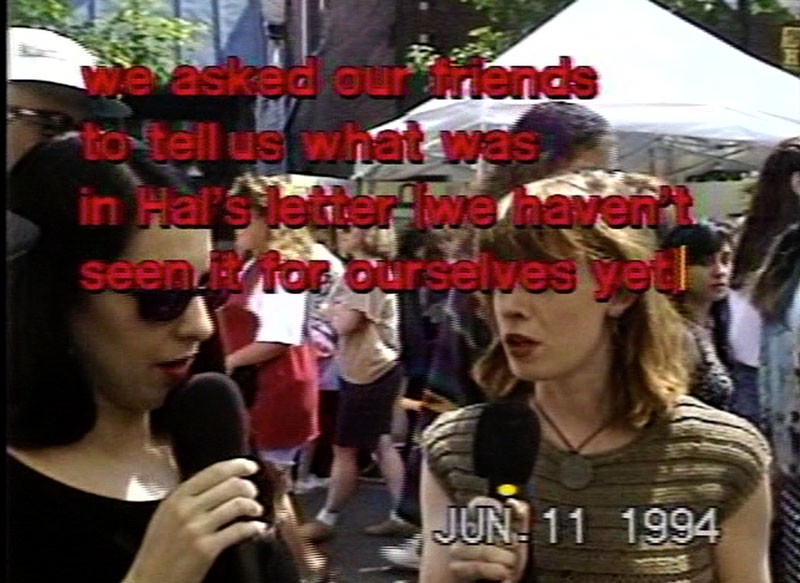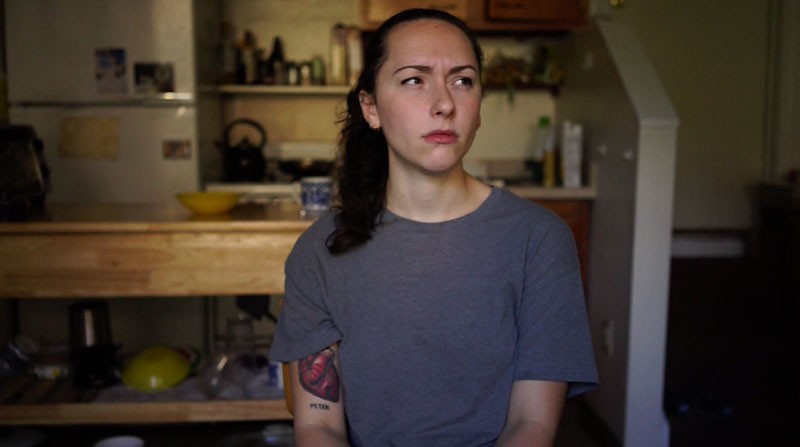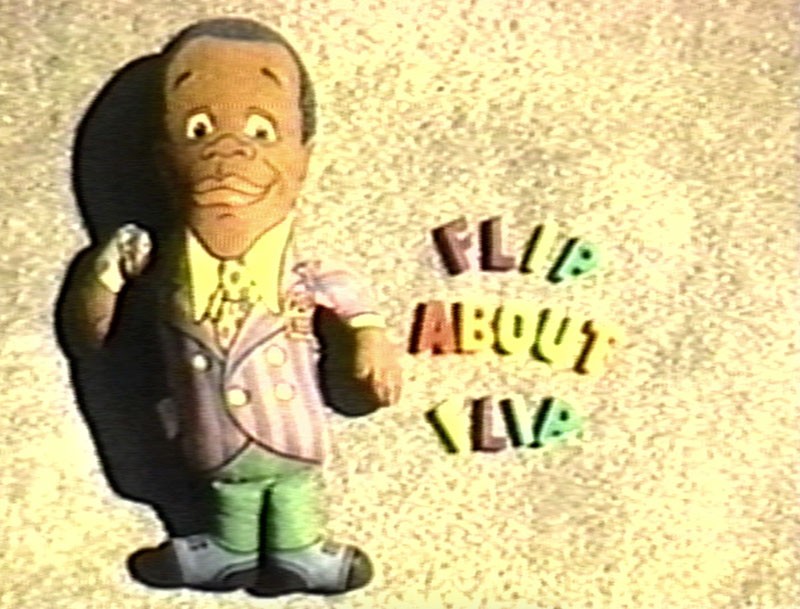March 26th – April 1st
With work by Ron Ehmke & Richard Wicka, Danny Plotnick, and Rachel Fein-Smolinski
As part of Squeaky@x0
Exhilarating or terrifying, when unlikely forces align one of the phrases we most commonly utter is “…was just like a movie.” This phrase can come to mind during a romantic moment, or a comedic one, or during moments of collective horror like the destruction of the World Trade Center. It’s a phrase we sometimes seek out to break the monotony of the everyday, and to add meaning to our moments. Our lives are saturated by, and in constant comparison to moving images – some of which we know by heart; others fragments of colors, faces, and sounds deep in our memories.
The three works collected here play upon this desire for meaning through the moving image. Ron Ehmke & Richard Wicka’s public access show Snap Judgements #83 We open Hal’s Letter has the duo walking through the yearly Allentown Art Festival, while asking visitors to review films they haven’t seen like City Slickers 2 and Leprachaun 2, as we are treated to the interviewees hopes and desires for such megaplex fair. Flip About Flip has Danny Plotnick walking around the city asking the public about their memories (if any), of Flip Wilson, often termed “TVs first black superstar.” Finally, Rachel-Fein Smolinski’s Attempts to Recover Long-Term Memory, the namesake for this week’s grouping, has the filmmaker attempting to recall the dialogue from the New Years scene of the romantic-comedy When Harry Met Sally. Smolinski plays the scene after attempting to recall it, the details from her memories standing out in the face of Billy Crystal and Meg Ryan’s love-hate relationship coming together, our dreams merging with our desires. – Ekrem Serdar
Works Included

Snap Judgements #83 We open Hal’s Letter 6/18/94
Ron Ehmke & Richard Wicka
28 min, DV, USA, 1994
Snap Judgments cable access series (1991-95) features reviews of films by people that haven’t seen them yet. This episode is shot at and around Buffalo’s 75th Allentown Art Festival. We open Hal’s Letter invites strangers, a mime troupe, a band, and friends of makers and co-hosts Ron Ehmke and Richard Wicka to recount ‘Hal’s letter’. Discussions about post-industrial capitalism, Camaros, astrology, forgery, fate, their public access production in process, and the nature of coincidence ensue. As John at the salon puts it, “Hal is probably everything. The universe is Hal.”

Attempts to Recover Long-Term Memory
Rachel Fein-Smolinski
5 min, HDV, USA, 2015
Of her video, Rachel writes, “Attempts to Recover Long Term Memory is exactly what the title states. I am attempting to recall dialogue and description of scenes from movies that I have seen multiple times, but not recently, making this an exercise in trying to recover long-term memory. My recollections are nowhere close to comprehensive which leads me to question what kind of impression films themselves have left on me, and how memories of prosthetic (mediated) experiences degrade the original experience with the film.”

Flip about Flip
Danny Plotnick
6 min, DV, USA, 1996
Flip about Flip is a street level documentary. Individuals are asked to recall Flip Wilson, the first black person starring in the title role of an American television show. People become animated and physical, recanting various antics and stories about Flip.
Of Flip about Flip, Danny writes: “Back before mini DV, making films was a long, arduous, expensive proposition. In reaction to that, I liked making very short films in between longer projects. The idea was that in order to keep the chops honed I would make smaller projects that could be shot in an afternoon on one or two reels of films, thus keeping the costs down. Flip is one of these endeavors. This film was shot in an afternoon with the assistance of [Alison Faith and] Chris Enright handling all the interviews. All told we shot three rolls of film. I think the total cost for the film was $60, a shockingly low budget for the time.”
* The source footage for these public access videos would have been beta or ¾” or even a digital 8 format (depending on date etc)– source format of digi video transfers is unknown (Flip was film before the public access transfer to one of the aforementioned tape formats tho) so DV is better (b/c accurate) – VHS was generally not used for public access.

